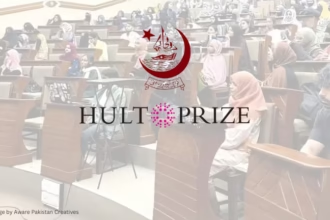In recent days, the global media has been abuzz with the remarkable success of India’s Chandrayaan 3 mission, which successfully landed on the moon’s south pole. This achievement is particularly noteworthy for a developing nation and speaks volumes about India’s determination and progress in space exploration. It’s worth remembering that India’s journey to the moon wasn’t without setbacks; this third attempt marked their victorious entry onto lunar terrain.
India had made previous attempts, which unfortunately ended in failure. However, this third attempt finally granted India access to the moon. In the past, India’s failures were met with celebration by some, and there was considerable mockery directed towards the country. Yet, it’s essential to recognize that failure is an integral part of progress. As the saying goes, ‘The knights fall on the battlefield, and those who walk on their knees fall as well.’
India’s relentless efforts, despite initial setbacks and mockery, ultimately paid off. They tried repeatedly and persevered, ultimately achieving their goal. As a result, India became the fourth country in the world and the second in Asia to reach the moon. What’s even more significant is that they landed on the moon’s dark side, a feat that even some developed nations have yet to accomplish. This achievement promises to provide valuable insights into this unexplored region of the moon for the benefit of the entire world.
Our education system perpetuates job-seeking over entrepreneurship, hindering our country’s progress.
A familiar saying, ‘The world has reached the moon, and you are sitting here,’ aptly captures the disparity between India’s accomplishments and our own. While our neighboring country, with a similar history, has achieved lunar exploration, our progress remains lacking. This serves as a poignant reminder of the urgent need to prioritize development and innovation over political disputes.
In our nation, too much focus is placed on power struggles, political appointments, and elections. Developmental initiatives often get mired in politics, hindering our country’s progress.
Our education system is also at fault, as it fails to nurture creativity in students. The ruling class seems uninterested in improving this system because an educated and creative populace threatens their status quo. Instead of encouraging innovation and entrepreneurship, the system pushes students toward traditional career paths, such as becoming doctors or engineers, perpetuating a cycle of job-seeking rather than job creation.
Neglect of knowledge is a primary reason for our current stagnation. Political disputes often hinder developmental initiatives.
Contrast this with the Islamic Renaissance era, where scholars like Al-Farabi, Ibn Sina, and Ibn Rushd drove advancements in various fields. Today, the Islamic world lacks such visionary figures, largely due to the absence of internationally recognized research institutions. This regression is a result of neglecting knowledge, a heritage that once enriched our culture.
It’s disheartening to note that there are no longer prominent figures like them in the Islamic world. This isn’t because we lack the capacity, but rather because there are no educational institutions in Islamic countries, including Pakistan, that are recognized on an international level for their research efforts in various fields, including the sciences. This neglect of knowledge is the primary reason for our current stagnation.









